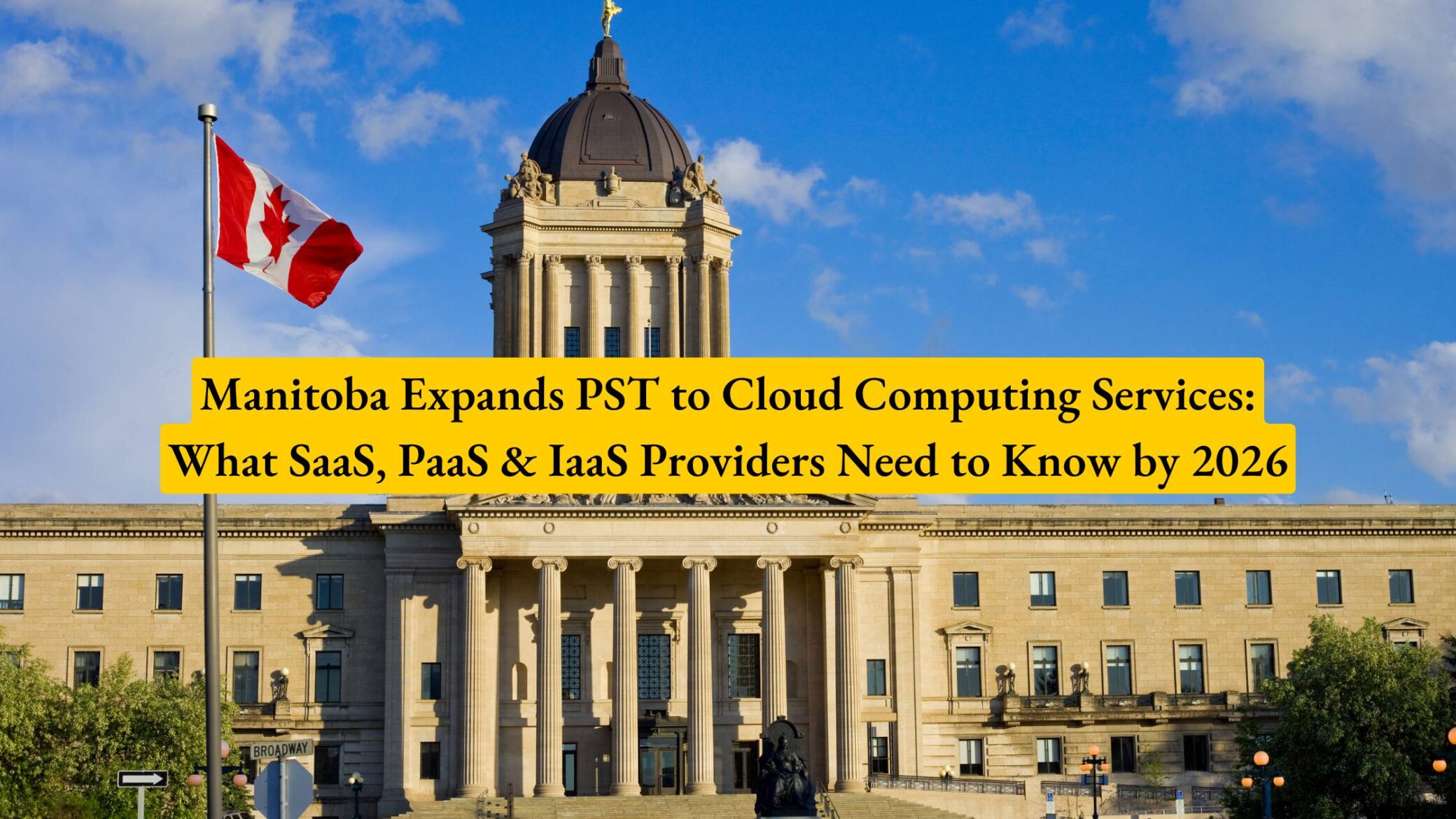Big Changes Coming to Manitoba PST: Cloud Computing Services to Be Taxable in 2026
If your company has Manitoba business or individual customers and you’re registered or required to be registered, Manitoba’s retail sales tax (RST or PST), this article will help you prepare for the coming changes related to various types of cloud computing sales.
Starting January 1, 2026, Manitoba requires RST to be applied to a wide range of cloud computing services, that goes well beyond its existing rules to tax software and various interpretations thereof. This change follows a similar expansion of the sales tax base, introduced by British Columbia (B.C.) in recent years, and by extension, Manitoba is expanding its RST base.
Whether you’re a provider of various forms of cloud computing services, or you’re a Manitoba business or other organization that acquires such inputs to the operations, you’ll need to prepare operations and finance staff, to adapt to the coming change.
What are the Manitoba PST changes for cloud computing?
Traditionally, most types of software (excluding certain customized software) such as package or pre-written system or application software has been subject to sales tax in most of the provinces that have a retail sales tax; however, Manitoba now adds various cloud computing services to the RST base. Similar to B.C., the new rules apply if the purchase of the cloud service (including software) is for use on a device that is ordinarily situated in Manitoba.
Similar to B.C., Manitoba will consider cloud computing services to include software as a service (SaaS), platform as a service (PaaS) and infrastructure as a service (IaaS). Arguably, SaaS has always been subject to RST if it was accessed on a server located in Manitoba; however this latter fact was rarely the case, so the province was losing out on RST revenue.
Manitoba considers SaaS to include accessing (or the right to access) software applications via the internet, where the SaaS provider manages all aspects of the software, which is typical of most SaaS arrangements. PaaS includes the provision of hardware AND software resources to develop applications on or via the cloud. Lastly, IaaS involves the user’s ability to utilize various infrastructure via the cloud, such as storage, networking, processing and computing capabilities and virtualization. This will include data processing, data back-up and retrieval provided as part of cloud computing services.
Are there any other changes to Manitoba’s PST rules for software and cloud computing?
The existing rules for custom software and software generally are not changing; and are outlined in Manitoba’s RST Bulletin-033 Computer Software and Online Services. Optional computer services (i.e., not part of IaaS, PaaS or SaaS agreements) such as data processing, data back-up and retrieval, consulting and training services, including help line support will continue to not be taxable and excluded from definition of computer services. However, if any of these are provided as part of a cloud computing service, they will be subject to RST after 2025.
Similar to how software that is purchased for use in Manitoba and also in other jurisdictions, the cloud computer services provider can pro-rate the RST applicable to users or devices in Manitoba vs. all other jurisdictions. If you’re a Manitoba customer (generally business or other organizations) and RST is not charged by the supplier (e.g., an offshore provider not registered or required to be registered for RST), then the Manitoba customer must self-assess RST on the proportion of taxable cloud computing services for “use in Manitoba”.
Our take-aways
Manitoba has provided a long lead-time to allow cloud computing service providers to prepare for this change, as well as Manitoba customers who acquire such inputs for business or personal use. However, the publicly available guidance to date is minimal, so we expect to see more details and a dedicated bulletin released in the fall of 2025.
We would expect that much of the interpretation and application of the new rules will closely follow what B.C. has already stated when these types of cloud computing services were added to their sales tax base.
Simple stuff right? At Achen Henderson, we have a team of Canadian and US indirect tax specialists as well as customs and trade professionals to help your business navigate these issues and the sea-change of other indirect tax changes and challenges wherever you do business in Canada or the US.
Watch our blog for future updates, as we learn more about this sweeping change to the cloud computing landscape in Manitoba

